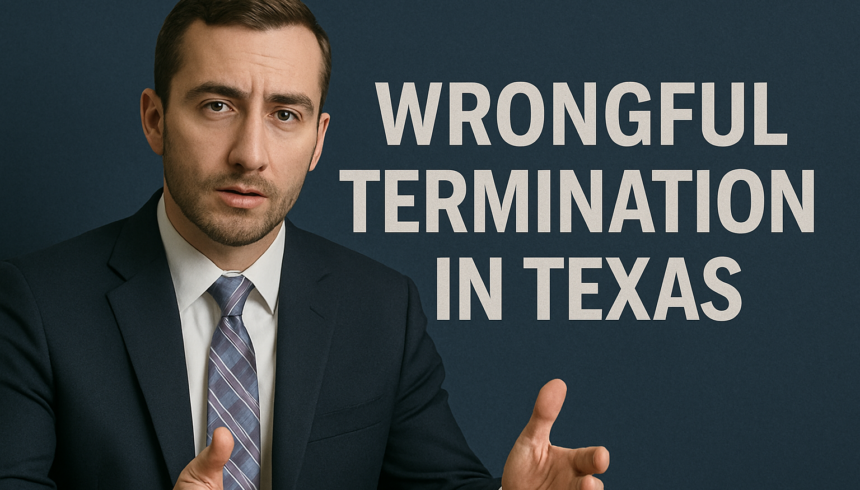
 By Evan Lange
By Evan Lange
Before proceeding, please review the legal disclaimer.
Getting fired from your job is never easy. But what if it was illegal? What if your termination violated state or federal law?
If you’re asking yourself whether you’ve been the victim of wrongful termination in Texas, you’re not alone—and you’re right to explore your legal options.
At The Lange Firm, we help Texas employees understand their workplace rights and take action when those rights are violated. In this blog, we’ll explain what counts as wrongful termination in Texas, what doesn’t, and what you can do if you’ve been fired unfairly.
Wrongful termination occurs when an employer fires an employee for a reason that violates the law—either state or federal.
Texas is an at-will employment state, which means employers can fire employees for almost any reason. However, “almost” doesn’t mean “any.” There are exceptions where firing someone is against the law.
If you were fired due to discrimination, retaliation, refusal to perform illegal acts, or exercising your legal rights, you may have a valid claim.
In Texas, at-will employment means that:
But there are exceptions. Termination is illegal if it violates:
The at-will doctrine is broad—but not absolute.
Some of the most frequent grounds for wrongful termination cases in Texas include:
Firing someone based on:
Protected under federal laws like Title VII, ADA, and ADEA, as well as the Texas Labor Code Chapter 21.
Firing someone for:
Firing someone for reporting illegal activity by the employer. Public employees in Texas are protected under the Texas Whistleblower Act.
You can’t be fired for refusing to commit an illegal act, such as falsifying documents or violating regulations.
If you were fired in violation of a written or implied contract, you may have a wrongful termination claim.
To be clear, here are reasons employers cannot legally use to fire you:
Illegal Reason | Protected Under |
Reporting sexual harassment | Title VII of the Civil Rights Act |
Requesting disability accommodation | Americans with Disabilities Act (ADA) |
Taking FMLA leave | Family and Medical Leave Act (FMLA) |
Complaining about unpaid overtime | Fair Labor Standards Act (FLSA) |
Reporting workplace safety violations | Occupational Safety and Health Act (OSHA) |
Filing a discrimination complaint | EEOC / Texas Workforce Commission (TWC) |
✅ The Lange Firm can help you determine if your firing violated any of these legal protections.
To win a wrongful termination case, you must prove:
⚠️ Don’t wait—missing your deadline could mean losing your right to sue.
If your claim succeeds, you may recover:
✅ Settlements are also common and may include a monetary payout and a neutral job reference.
You should contact an attorney immediately if:
The Lange Firm offers confidential consultations to help you understand your rights and options under Texas and federal law.
At The Lange Firm, we fight for employees who have been:
We can help you:
We believe in holding employers accountable and protecting workers across Texas.
📞 Contact us today to schedule a consultation and protect your future.
So, what qualifies as wrongful termination in Texas?
✅ If your employer fired you for an illegal reason, in retaliation, or in violation of public policy, you may have a strong legal claim.
With The Lange Firm by your side, you can take action with confidence—and fight for the compensation and justice you deserve.
Follow our newsletter to stay updated.

2025- The Lange Firm all rights reserved.

Mr. Evan B. Lange is the attorney responsible for this website. | All meetings are by appointment only. | Principal place of business: Sugar Land, Texas.
The information you obtain at this site is not, nor is it intended to be, legal advice. You should consult an attorney for advice regarding your individual situation. We invite you to contact us and welcome you to submit your claim for review. Contacting us does not create an attorney-client relationship. Please do not send any confidential information to us until such time as an attorney-client relationship has been established.